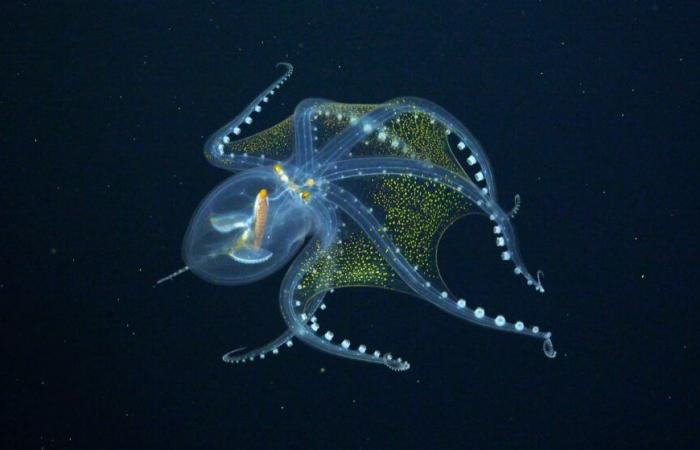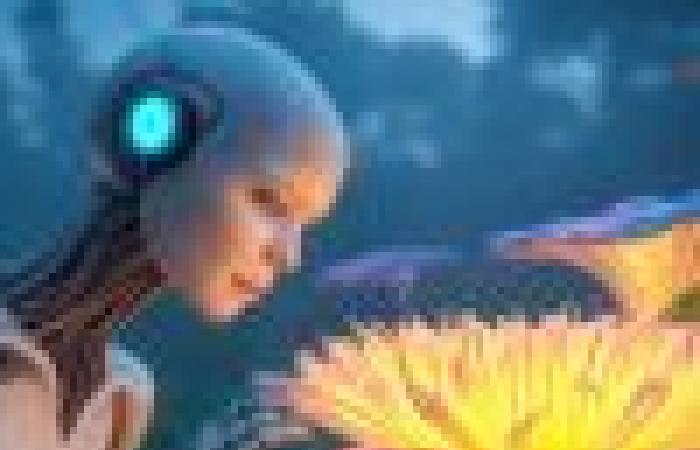⇧ [VIDÉO] You might also like this partner content
An Oxford University biologist suggests that if humans became extinct, octopuses could build the next great civilization. According to him, itAnimals are not only quite intelligent enough for this, but also have an excellent ability to adapt to a wide range of conditions, unlike humans and most mammals. However, our profound impacts on the planet could annihilate, for them, any chance of evolving.
Fossil records have shown that over the past 500 million years, Earth has experienced 5 mass extinctions wiping out entire branches of the tree of life, the last being that of the dinosaurs around 65 million years ago. years. It took millions of additional years for ecosystems to adapt and recover. Scientists estimate that we are currently facing the sixth mass extinction. However, unlike the previous ones, it is due to the proliferation of a single species: theA wise man.
Studies have shown that entire branches of the tree of life have been lost over the past few centuries, solely due to the expansion of human activity. Research suggests that 50% of land species could become extinct by 2080 if human-caused greenhouse gas emissions and deforestation are not quickly reduced. Other factors could also lead to mass extinction, such as nuclear war.
If humans disappeared from the face of the Earth, what species could take over to build a new civilization? According to Tim Coulson, a biologist at the University of Oxford, the octopus could be an excellent candidate. He believes that they are one of the most intelligent and adaptable creatures on the planet, highlighting in particular their ability to solve complex problems – which could be a decisive evolutionary advantage in an environment of mass extinction.
Exceptional intelligence and ability to adapt
The intelligence and dexterity of octopuses can be explained by their decentralized nervous system. They have a highly evolved nervous system, with particularly dense neuronal clusters at each of their eight tentacles. More precisely, they have nine independent brains, including one at the head and the other eight at the junction of each tentacle.
A large number of studies and experiments have shown that they are capable of manipulating all kinds of objects, opening locks, navigating complex mazes, strategizing how to raid their neighbors' food supplies, etc. Some species have even been observed using tools in the wild, such as carrying hollow coconuts to use as armor or makeshift shelter.
Other animals, such as monkeys and crows, can also use tools, but do not have eight powerful, skilled limbs working in concert to meet the challenges of their environment. Aside from their agility, octopuses also have other skills. For example, they can blend into their environment by quickly changing the pigmentation of their skin or by imitating (almost perfectly) the shape and color of other animals to escape predators. This illustrates an astonishing ability to learn from experience, including memorizing which animals to imitate to intimidate and repel predators.
On the other hand, unlike humans and other mammals who can only live in relatively restricted environments, octopuses live in a wide diversity of environments, ranging from shallow coastal waters to the deep sea. “ There are many species of octopus, not just one species. [comme] the human species “, explains Coulson.
« Although some populations and species may fare poorly, I believe others have the ability to survive, spread, and diverge through evolution to colonize a wide variety of habitats. “. A recent study has also shown that certain species can quickly adapt to environmental changes by, for example, modifying their RNA in response to cold.
See also
A chance of evolution reduced by the impact of human activities
However, intelligence and dexterity are not enough to build a civilization. To do this, it would be necessary to be able to establish social structures and promote intergenerational learning. The ability to learn from others is one of the fundamental bases of society. However, octopuses are known to be solitary animals, which generally only come together to mate and largely fend for themselves from birth. Some species are even cannibalistic.
However, some species still show signs of social behavior. Small groups of around ten specimens have been observed cohabiting, suggesting a potential evolution towards broader socialization. A recent study also showed that some octopuses can collaborate with other animals to lead group hunting sessions. In a hypothetical future where they developed a civilization, they could coexist with other species surviving from the sixth extinction.
However, the impacts of human activities on the planet could reduce, or even eliminate, the chances of such an evolution occurring. Microplastic pollution, overfishing and ocean warming have dramatic impacts on marine life, and octopuses are not spared.
If octopuses do not survive mass extinction, researchers estimate that nematodes (found in almost every habitat on Earth) and certain birds with advanced intelligence characteristics (such as cockatoos and crows), could also be good candidates for building a new civilization.







